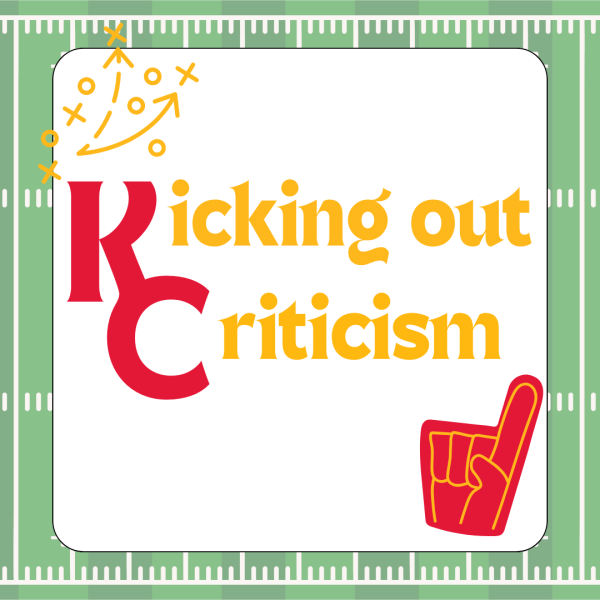Introversion shouldn’t be considered a character flaw
Shy, antisocial and uninterested are words that commonly come to mind when one thinks of introverts. Media largely portrays them as the quiet, bookish people who sit at the back of the classroom, make office conversations turn awkward and stop abruptly, or who, by the end of the story, are happier because they can finally go to a party, talk to people and fit in.
However, junior Lillie Barnhart said being an introvert isn’t necessarily what is portrayed by the ever-busy society we live in where people are in constant contact with one another.
“I really like having quiet time alone to be with myself and relax,” Barnhart said. “A lot of times it’s stuff I don’t do on purpose. I’m always not answering people, not on purpose, I just forget, so I’m finding myself alone a lot.”
Introverts can be described more accurately as those, like assistant band director Laura Bock, who need time alone to recharge. They often feel drained after being in situations with lots of people and stimuli.
“Obviously I have to run a band and especially in marching band, that’s where I’m a lot more energetic and out there,” Bock said. “On the podium, you have to be different. The thing for me, that I know about myself, is that then I need that recharge time, otherwise I’d just totally burn out. That became most apparent when I was in college. People would want to go out and party and that was always a terrible experience for me. I’d rather go practice or go to a coffee shop.”
Similarly, Barnhart said she thinks more people are extroverted and so they don’t understand why someone would choose to spend time alone, hence the stereotype of introverts hating other people. Since a lot of her friends are introverted as well, she said they understand each other a little better.
“A lot of my friends are also introverted so when they just need some time alone, I get that, but sometimes I want to hang out and they’re not really up to it,” Barnhart said. “I get it because sometimes they want to hang out and I’m like, ‘no.’”
For senior Jeremy Wood, being an introvert made it difficult to make
friends when he moved a couple of years ago, but now, he said he has more meaningful connections with people.
“Most of my really, really, deep, good friends are introverted, but what I’ve actually found is my more extroverted friends, they tend to have a lot of friends but not super deep connections with a lot of them,” Wood said. “So it’s more of shallow friendships but there’s a lot of them, like a lot of the difference of being known as opposed to being friends with someone, per say. From my experience, I think my more introverted friends are the ones that have been there longer and I’ve had deeper friendships with.”
According to Psychology Today, introverts and extroverts approach friendships differently, so introverts need one-on-one time to build their relationships while extroverts feel they can spend quality time with people in group situations. Introverts can get along very well with extroverts, however, as Bock said she has an interesting work dynamic with band director Brandon Lesando that allows them to complement one another.
“We have traits that balance out really nicely, but at the end of the day we think very similarly,” Bock said. “We’ve said the same thing at the same time or come to the same conclusion independently a lot of times so that’s a really cool, unique situation where we fit together as coworkers.”
Having a more introverted personality doesn’t make someone a better or, more often portrayed in media and literature, worse friend, classmate or coworker. Introversion isn’t a character flaw or trait that needs to be overcome as some make it out to be. Wood said there is definitely pressure on introverts to portray more extroverted qualities.
“If you go look at, say, [my] class, the front row of our assemblies and things like that, all of those people up there are super extroverted and you notice as you sit further back you get more of the introverts,” Wood said. “I feel like there’s pressure because one of their friends will be like, ‘Hey, come sit in the front,’ and they might not want to because they might not be as vocal as some of those people and some of those people in the front may make awareness of it. I know I have been put in positions like that.”
Society as a whole deems extroverted qualities more acceptable, especially in when it comes to social interaction. High school is a primary example, as students who are quiet or reserved are often told they need to participate more in class or a group project, or are antisocial if they don’t go out with friends on the weekend.
“I think [it’s] the capitalist side of our culture — even just what you guys are going through where you’re filling out college applications and they’re asking about leadership, with that it is kind of banking on people having extroverted qualities,” Bock said. “I find it kind of crazy that they’re expecting every high school student to be a leader when statistically speaking, that’s not really possible.”
The idea of introverts as social outcasts is problematic, Bock said. Introverts have a lot to contribute to society, just one example being their ability to focus on their own for long periods of time.
“I think we need all different kinds of people,” Bock said. “I think it’s a bit of a false dichotomy, because people are different in different environments, is the key thing … I think we need to recognize whatever personality a person has, there are strengths that they can draw upon if they’re in the right environment.”
Everyone has something to contribute, Bock said, whether they are vocal about it or prefer to write in down, something she has students do in symphonic band so that everyone can contribute their feedback and insights comfortably. Similarly, Wood said introverts can come off as indifferent when they are just more likely to only speak when they feel they need to.
“If I don’t have something to say, I won’t say it, so if I do say something, it does mean something to me and I don’t want to be one of those people who just talks all the time,” Wood said.
Just like everyone else, introverts have opinions, feelings and quirks, and it’s important to accept them for who they are. It may be more difficult to get them to open up, but it’s important to give everyone a chance and not pressure them to be something they’re not.
“Not everybody is going to be the same as you,” Wood said. “Ego has a big part to play in that, regardless of who you are. I can say I’m kind of a nerd, and I’m fine with that. I don’t usually care what other people think of me because if they wanted me to change and I don’t, and they’re not going to be friends with me or something like that, that’s something they’ll have to deal with. Same goes for me; I’m not going to ask someone to change.”
| meganflood







